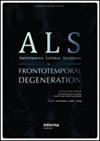Review of Mapping Abundance for a Planetary Future: Kanaka Maoli and Critical Settler Cartographies in Hawai'i by Candace Fujikane (Duke University Press)
引用次数: 0
Abstract
Employing the teachings of Indigenous cartographic practices to trouble the Western epistemologies of subdivision that underpin private property development, Candace Fujikane's 'Mapping Abundance for a Planetary Future' charts out an unabashedly hopeful vision for futures that exceed the dictates of capitalist accumulation. Abundance, as Fujikane shows throughout, is not an ungrounded future wish, or a hazily-defined otherwise that we must collectively imagine. It has already been mapped out for us by Indigenous peoples—in her example, Kanaka Maoli—who have long thrived according to fundamental philosophies of cultivation and relationality.《为地球的未来绘制丰富的地图:夏威夷的卡纳卡毛利和关键的定居者制图》,坎迪斯·藤凯恩著(杜克大学出版社)
坎迪斯·藤凯恩(Candace Fujikane)的《为地球的未来绘制丰富的地图》(Mapping Abundance for a Planetary Future)一书利用土著制图实践的教导,对支撑私有房地产开发的西方细分认识论提出了质疑,该书毫不掩饰地描绘了一幅超越资本主义积累支配的充满希望的未来图景。正如《藤游》贯穿始终所展示的那样,富足不是毫无根据的未来愿望,也不是我们必须共同想象的模糊定义。它已经被土著人民为我们规划好了——以她为例,卡纳卡·毛利——他们长期以来一直根据培养和关系的基本哲学而蓬勃发展。
本文章由计算机程序翻译,如有差异,请以英文原文为准。
求助全文
约1分钟内获得全文
求助全文

 求助内容:
求助内容: 应助结果提醒方式:
应助结果提醒方式:


